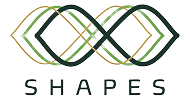The completion of the design and preparation process of the Use Case ‘’LLM Care Health and Social Care Ecosystem for Cognitive and Physical training’’.
The design and preparation process of the Use Case “LLM Care Health and Social Care Ecosystem for Cognitive and Physical training” has been successfully finalized, in which AUTH scientific team and SciFY technical partner joined forces and collaborated in a three-phase process: Plan, Design and KPIs (phase 1), Mock-up Validation (phase 2) and Hands-on Experiments (phase 3).
During phase 1, initial concepts and approaches have been addressed, while technical, organisational, logistical and human requirements have been identified, setting the basis for the demonstrations’ planning. In addition, phase 2 included the mock-up test, where initial developments were put into a visual representation without actual function, in order to provide a prototype of the digital solutions that will be developed. The mock-up test was conducted with the aim to validate the digital solutions deployed in the Use Case and provide technical partners the opportunity to integrate user feedback at an early stage of the technological development process.
In particular, two formal and two informal caregivers participated in the test that was actualized virtually within the context of the Thessaloniki Active & Healthy Ageing Living Lab (Thess-AHALL) of the Aristotle University of Thessaloniki (AUTH). User scenarios were provided to participants, offering them the opportunity to interact with the visual content of the digital solutions’ interfaces and features. The evaluation was performed through a self-administration questionnaire, addressing the key design topics and collecting qualitative/quantitative feedback from participants. In particular, measurements included technology usability and acceptance questionnaires along with open-ended questions focusing on the digital solutions’ functionalities. Findings and related feedback, including any recommendations by participants, enabled design modifications and further amendments of the proposed digital solutions.
Additionally, following the mock-up test, the phase 3 hands-on training was conducted among older adults and healthcare professionals. The aim of the hands-on training was to engage end-users in the actual piloting of the Use Case and evaluate the functionalities and usability of the developed digital solutions. Through this process, the opportunity to challenge the digital solutions’ functionalities was provided to participants, leading to the collection of feedback and amendments of the digital solutions before phases 4 and 5. Specifically, the hands-on training was conducted face to face, following all necessary safety guidelines and protocols regarding COVID-19. Older adults, healthcare professionals and members from the AUTH scientific team were involved in the hands-on training, which was conducted in Thess-AHALL. Participants were fully informed about the scope of the hands-on training and exploited the digital solutions that have been designed and developed during previous phases. In order to ensure that essential feedback was gathered, a mixed-methods evaluation was carried out, including Likert scales that measure user-friendliness, system usability and acceptance, user satisfaction and open-ended questions focused on each digital solution’s functionalities and features.


